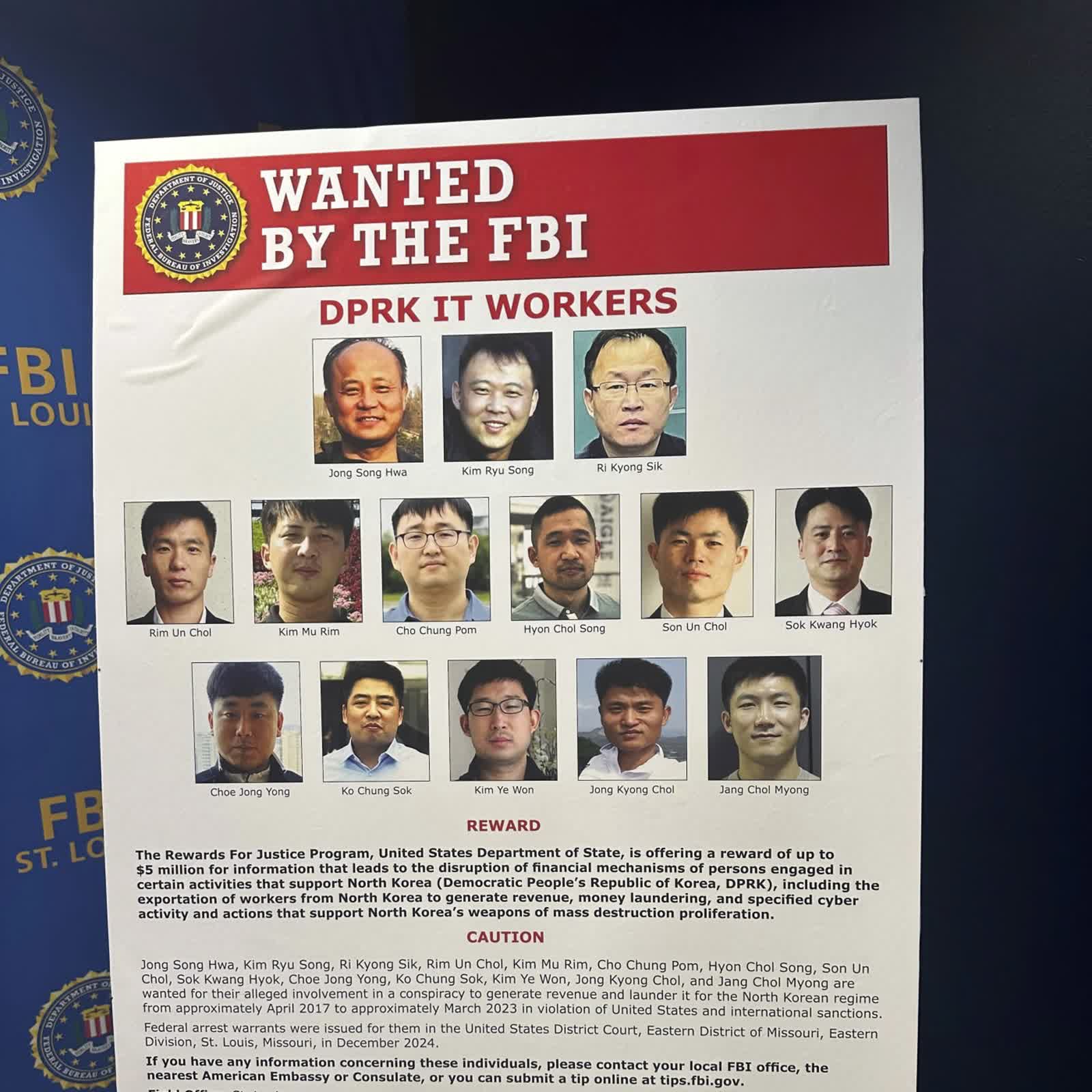
-
info@forensicss.com
Send Email
-
11400 West Olympic Blvd, Los Angeles, CA 90064
310-270-0598
Confidentiality Guaranteed
310-270-0598
Confidentiality Guaranteed
Blog Details
-
ForensicsS | Private Detective & Digital Forensics Investigation Experts > News > Uncategorized > How North Korea infiltrated remote US jobs by technique of a TikTok person in Minnesota
May
How North Korea infiltrated remote US jobs by technique of a TikTok person in Minnesota
Cybercrime
Serving tech enthusiasts for over 25 years.
TechSpot methodology tech diagnosis and advice you can have faith.
WTF?! The rise of remote work has created unique opportunities for every and every American companies and covert North Korean operatives. In a intention that touched hundreds of US companies and funneled hundreds of thousands of bucks to Pyongyang, North Korean tech workers quietly infiltrated the American team, relying on unwitting US electorate and complex digital deception.
A present Wall Avenue Journal investigation highlights the memoir of Christina Chapman, a Minnesota native and peaceable TikTok person, showing how customary Americans modified into entangled in a world fraud operation. Chapman portrayed herself on-line as a busy freelancer, sharing her each day routines, writing objectives, and fancy of Japanese pop song with over 100,000 followers. Unhurried the scenes, federal prosecutors assert her home modified into a “laptop farm” – a nerve heart for North Korean operatives posing as US-basically based tech workers.
Chapman’s involvement began with a straightforward LinkedIn message in early 2020, asking if she would “be the US face” of a company that placed distant places IT skills. Court docket documents counsel she became as soon as unaware her purchasers had been North Korean operatives the usage of stolen American identities. Her scheme became as soon as to bag company laptops, residing up remote entry, and retain the devices operating so international workers can also appear to scheme from all the device by technique of the US. She also dealt with paperwork, including falsified tax documents, and most incessantly forwarded paychecks after taking a slash.
The dimension of the operation became as soon as staggering. Federal prosecutors renowned that Chapman’s “laptop farm” supported bigger than 300 companies, serving to North Koreans fetch $17.1 million in wages. A amount of those companies, unaware of the intention, despatched gentle equipment and funds straight to her take care of. Adam Meyers, senior vp at cybersecurity firm CrowdStrike, said his team has tracked practically 150 cases of North Korean workers infiltrating customer networks, with notebook computer farms identified in not not as a lot as eight states. The FBI estimates identical scams piquant thousands of North Korean workers generate hundreds of hundreds of thousands of bucks every 300 and sixty five days – funds US officers assert straight abet North Korea’s nuclear weapons program.

These workers, in most cases highly trained by technique of North Korea’s technical training programs, secured jobs at well-known American companies – most incessantly maintaining a pair of positions simultaneously and incomes six-settle salaries. The intention’s sophistication went past straightforward identity theft. North Korean operatives feeble developed instrument to avoid corporate security, including programs that spied on virtual conferences and extracted gentle data undetected. In one case, a cybersecurity expert came upon a company notebook computer equipped with customized-built instruments designed to evade antivirus instrument and firewalls, thereby providing a practically invisible backdoor into the employer’s network.
To lead decided of detection, the operatives leveraged gig workers for duties starting from passing “liveness checks” at some stage in video calls to creating legit freelance accounts. They even experimented with generative AI to alter their appearance in on-line interviews, hiring Americans to stand in when those tricks failed. Court docket documents computer screen that the scam left a accelerate of collateral damage, including mistaken tax liabilities for bigger than 35 Americans whose identities the operatives had stolen.
Chapman’s trail printed the vulnerabilities that made her a scheme for recruitment. After struggling to fetch regular work following a coding boot camp, she lived in a scoot trailer without operating water or warmth when she accepted the LinkedIn provide. Her involvement grew over time. By early 2023, she had moved loyal into a four-bed room home in Arizona, affirming dozens of laptops and transport practically 50 devices distant places – many to a Chinese city near the North Korean border – to abet her “clients.”

In October 2023, agents raided Chapman’s home and seized bigger than 90 computer techniques, ending her secret aspect industry. By December, she became as soon as practically out of cash and facing severe federal costs however downplayed her troubles to her TikTok followers.
“I lost my job at the end of October and didn’t get paid for that last month,” she said in one post. “Even though I have been applying to at least three to four jobs every day, I haven’t found anything yet.”
Chapman pleaded guilty in February to wire fraud, identity theft, and money laundering. She earned just below $177,000 from the operation and faces a most prison sentence of just over nine years. A think will sentence her on July 16.
The Wall Avenue Journal’s investigation highlights how North Korea, without reference to heavy world sanctions, has modified into to unconventional tactics to generate earnings. Beyond an estimated $6 billion in cryptocurrency theft, as reported by blockchain analytics firm Chainalysis, the regime’s exploitation of the remote work increase has opened a profitable unique frontier.
“These crimes benefited the North Korean government, giving it a revenue stream and, in some instances, proprietary information stolen by the co-conspirators,” said Nicole Argentieri, head of the Justice Department’s Criminal Division.
Chapman’s case represents fully 1 example of a broader challenge. Regulations enforcement and cybersecurity specialists warn the threat is increasing as North Korean operatives repeatedly refine their tactics and exploit gaps in corporate security. As the remote work panorama evolves, American companies – and the oldsters who abet them – live in distress of becoming unwitting contributors in one in all the area’s most courageous digital frauds.
Image credit: The Wall Avenue Journal
Recent Posts
- Bond Rees Launches Cohabitation Investigation Provider to Reinforce Just and Monetary Cases
- Dwelling Republicans originate push to withhold Clintons in contempt of Congress over Epstein probe
- FBI’s Washington Submit Investigation Reveals How Your Printer Can Snitch on You
- Dignitas publicizes emergency subs following FBI and IgNar visa disorders
- We ran excessive-stage US civil war simulations. Minnesota is exactly how they birth | Claire Finkelstein
Recent Comments
Categories
Recent Posts



